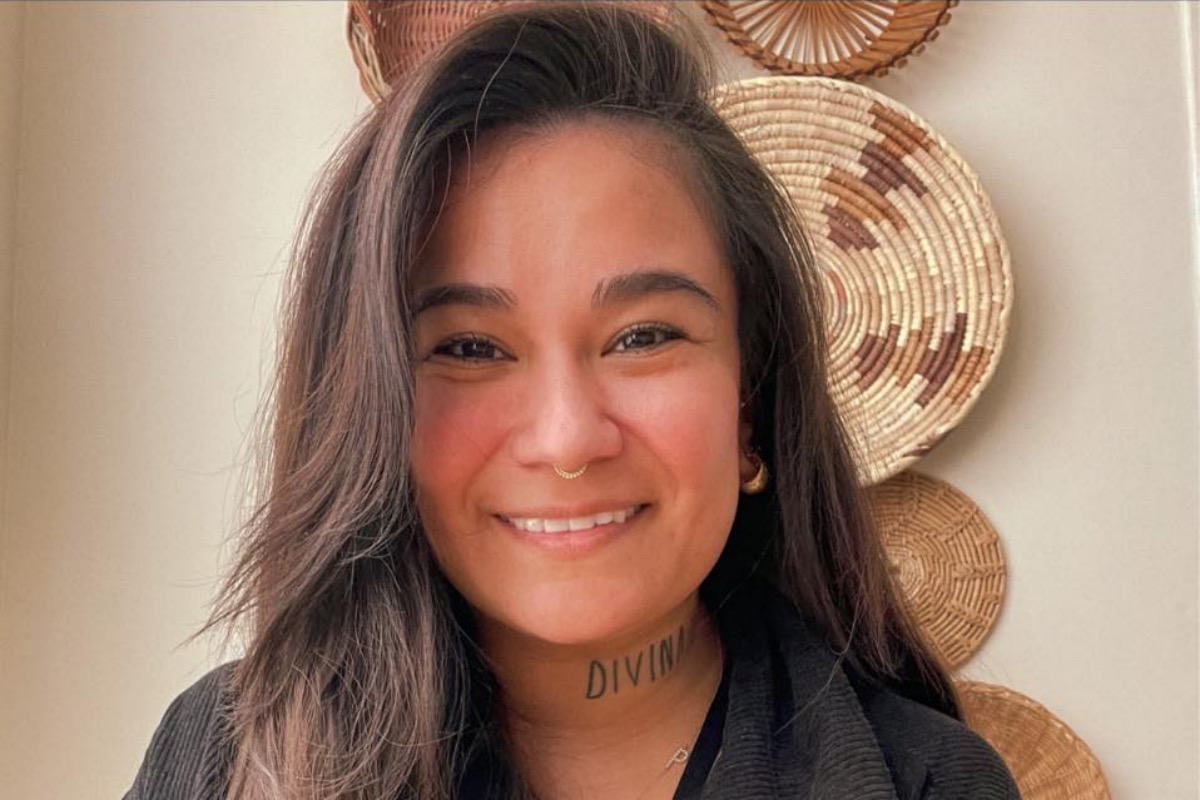

Prisca Dorcas Mojica Rodríguez, author of ‘For Brown Girls with Sharp Edges and Tender Hearts’ (Facebook)
“I have healed through knowing, and by knowing I can move toward possible solutions.”
In For Brown Girls with Sharp Edges and Tender Hearts (Basic Books), Prisca Dorcas Mojica Rodríguez revolutionizes literature by making it accessible to the everyday reader.
Growing up, I read very few books that featured lead characters from diverse social and cultural backgrounds. Prisca’s book resonated with me because her story closely resembles my background and personal journey. Through her book, it’s evident that storytelling can be a powerful tool to challenge the status quo and disseminate knowledge often confined to academic institutions. When I think of the term revolutionary, Prisca’s book tops the list because it encourages us to be unapologetic with sharing our unique stories as a way to elevate community voices.
Within the first few pages of the introduction, Prisca defines the intent of her book to redistribute knowledge through a method she calls “counter storytelling.” This led me to reflect on the ways in which academic circles have oftentimes failed to equip me with the tools or knowledge necessary to dissect and contextualize my lived experiences. Rather than imposing her own ideology on readers, Prisca strives to unpack how her personal experiences have been impacted by systemic oppression to offer insights on reforming these oppressive systems.
By discussing her own experiences with microaggressions within higher education and romantic relationships, Prisca challenges us to reflect on how these experiences are interconnected. These experiences are tied to the various isms pervasive in our society: racism, sexism, classism. Not only does Prisca work towards combating these isms within a higher education context, but she does a deep dive into how they can present themselves within community spaces. By tracing her own journey as a first-generation student and daughter of Central American immigrants, she sheds light on how the pressures to assimilate to American culture while conforming to cultural norms can be complex and traumatic. This authentic account of her lived experiences is not discussed nearly enough when identifying ways to support students from diverse backgrounds within our educational system and society as a whole.
Not only did I feel empowered after reading Prisca’s book, but it was a strong reminder of the need for diverse representation, beginning with knowledge imparted to our youth in the classroom and at home. We are underserving students when we do not provide them with a holistic view of how their lived experiences are situated within historical and political forces in our society. In learning about and celebrating diverse authors, we resist the need for othering individuals that do not adhere to societal norms or expectations. Prisca’s story serves as a guide in accessing the necessary language and tools to begin our own process of self-reflection and impactful change.
For Brown Girls with Sharp Edges and Tender Hearts is exemplary of the ways in which everyone has the ability to participate in revolutionary acts that drive change, but the real work begins within our communities, our households, and ourselves. I encourage everyone to celebrate the revolutionary act of storytelling as a pathway towards healing and liberation. Let’s begin by celebrating the impact of our lived experiences in resisting common stereotypes that attempt to categorize and exclude us from mainstream society.
As Prisca’s book serves to remind us, saber es poder.
***
Yezenia Sandoval is a nonprofit professional from the West Side of Chicago, with a master’s degree in educational leadership and policy and a passion to spark critical conversations at the intersectionality of race and education.



Thank you so much, Yezenia, for giving visibility to Priscia’s work. I am going to buy the book and spread her word. Members of underrepresented groups had to live with microaggressions, I am glad this is being addressed and awareness is being spread.